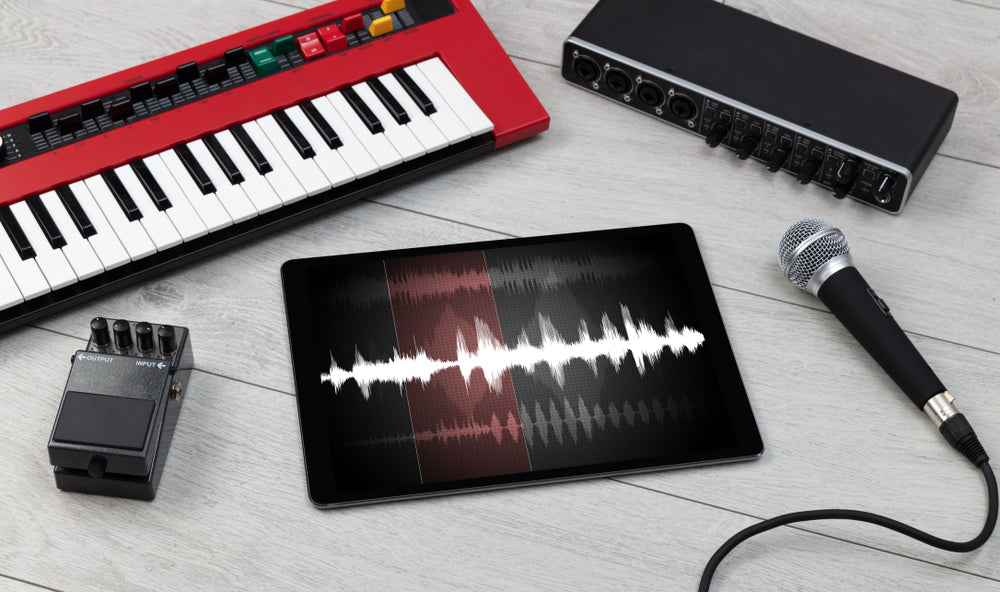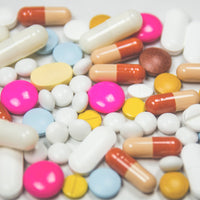Quiet in the library! Who says, and where is the study? Let's talk about ADHD and music.
Music has been around as long as humans have. It’s in of our blood. It transcends age, race, socioeconomic status, and culture. Music is essential to our nature. And what we can’t get away from is the fact that music “does” something to us. Sometimes, it causes our feet to move and our hearts and minds to soar. It generates emotions of sadness or celebration. Usually it brings people together, expresses the inexpressible, and inspires us to action.
It also entrances the mind, creating focus and concentration.
This type of thing is seen in countless spiritual practices. For thousands of years we have relied on anecdotal evidence and personal experience to confirm or explore these effects. Now, researchers with modern techniques and equipment (like EEG machines and other tools), can map and monitor the brain's response to music.
Maybe you are one of those people that always turn on the tunes when it's time to get serious with a project, or time to really start a brainstorm session, focus, or concentrate on a task. Perhaps you have always done this but never really known why you do it. You just know that there is something about playing music that promotes the desired effects.
Neuroscience is now figuring out “why” you naturally do this. And this neuroscience is now fleshing itself out into how we actually use music to help ADHD adults and children with attention and focus issues.
Putting ADHD music research to the test
We at our FastBraiin clinics decided to put a little of this research to the test. We did our own study within our clinics where we had 25 ADHD middle school students complete as many math problems as they could for 10 minutes. This, by the way, is how drugs are tested. Our results without music were horrible. Then, we got all the kids back in their seats and had them do a similar test again, this time blasting the environment with the theme song from “Happy Feet.”
The results were incredible!
Although feet were tapping, pencils were transformed into microphones, heads were bobbing, and bodies swaying, these kids’ grades went up dramatically. One kid that had previously done 34 problems with 4 right, with music completed 44 problems and got all 44 right! The entire group had improved success scores with an average of 38% increase.
Were the kids still with music playing? No. Focused? Yes.
Our results with active kids, playing music, and responding well on tests has us totally re-looking at the difference between stillness and focus. I sit in a swivel chair, and so do most people! Why? Would you say an NBA point guard flying up the court is not focused? What about a martial arts champion moving at the speed of light?
Prescription medications don’t even produce results such as this! In fact it takes just 25% percent increase in effectiveness of problem solving to give enough research backing for the development and production of study drugs.
So is music the free drug no one wants to talk about? Well, it's at least part of the equation for sure.
ADHD and music belong together.
We at FastBraiin incorporate music in our learning environment, have teachers playing music during test-taking, have kids playing music during homework, and even have some kids sing the poem or word they need to learn!
A few benefits of ADHD music for kids and adults!
• Increased focus and concentration.
• Improved grades.
• No side-effects.
• Increased self-confidence.
What type of music is good for ADHD?
When selecting the best music for ADHD, the goal is to engage the brain without overriding the child’s ability to focus on the task. There is sweet spot between supporting and distracting focus, and that sweet spot is what the best ADHD music will hit.
The jury is still out on exactly what music works best. Again, its all about the ADHD music sweet spot. That means its time for you to experiment. You know yourself. You know your productivity levels.
If you are a parent, this is your time to shine. You can watch your child and easily observe what works. Turn your child's work space into a research lab. Maybe even include your child in this process. Consider:
- How fast is the song?
- What emotions does the music inspire?
- What type of music or genre is it? Classical, pop, electronic, etc.?
- Is it instrumental or music with words?
Our general recommendation is to find upbeat, happy, music that does not have words and that your child enjoys.
Why (beyond the studies that show improvement in focus)? The words demand greater attention from the brain than what is ideal. The idea is to have music in the background, providing a groove and constant sound to drown out distracting thoughts.
Words can have the tendency to cause distraction rather than support focus, that's why we encourage not to use rap. If your child doesn’t like the music then the same thing will happen, the music will become a source of distraction rather than support. If it’s emotionally down, then those same emotions may crossover into the child, creating a distracting and difficult emotional environment for learning.
However, individual differences are real. You might find the enjoyment factor is greater than the tempo factor, or vice versa. What you need to do is find what songs get the brain in high gear for learning performance.
Why music works for ADHD
ADHD kids are thought to be deficient in certain neurotransmitters that are important for the brain to make connections.
"Neurotransmitter" sounds like a big word, but it is a simple concept. These are chemicals that help nerves transmit signals. When these chemicals are low, the brain becomes sluggish. It's like the engine needs oil. Music has been shown to increase these powerful and necessary neurotransmitters. Music also fires up the entire brain. It taps into left and right brain hemispheres, engaging both the left brain (logic, structure, and rhythm), and the right brain (creative, imaginary, and spatial aspects).
An active brain is a focused brain
The FastBraiin/ADHD individual utilizes the entire brain, all in microseconds, and they quickly respond to what they see, hear, and are quick to react. Music works on our emotional center, giving us a calming effect, which in turns allows the connection from our emotional center to our thinking center to improve, and actually allow us to learn easier, and respond with information better. In sports, the music in the brain results in a calmer brain, allowing the motor centers to give out signals quicker and with a better response - therefore, improvement in overall performance.
This doesn't mean we completely understand it either. Much of the benefits of music on ADHD focus are still a mystery. We probably will never unpack all the explanation, however, with ADHD music therapy gaining much attention, it seems promising to expect new and exciting breakthroughs in the field.
4 Action Steps for FastBraiin parents/kids and ADHD music
1. Get rid of preconceived notions
We all have them. And of lot of times they aren’t realistically grounded. Maybe your preconceived notion is that focus and learning can't happen together. Maybe you were always told to study in a quiet environment. And maybe that worked for you. But this is about what works best for your child. Or maybe you like to listen to Beethoven, but your child likes Bieber. Listen to your child on this one, and watch the results.
2. Figure out your child’s best ADHD music.
Do the real work of figuring out what type/types of music work best with your child. Get a variety of songs and genres. Observe carefully. Ask your child for feedback. What does he/she like? Consider a combination of what he/she enjoys and what promotes the best focus. Find what doesn’t work, and stay away from it.
3. Create the proper learning environment for your child.
It’s a parent's responsibility to do all they can to help kids find their learning rhythm (no pun intended). Parents must find out how their ADHD child learns best, and do all they can, even with music, in the house, or at school, to promote these successful environments. We can’t make it rain, but we can prepare the field and hope it will. This may mean getting a little mp3 player or other audio device stationed next to where you child does their work. Ensure it's on during study times and that your child understands the value of it. Eventually, he or she will make it part of their study ritual.
One of our biggest ADHD parenting tips is to challenge parents to become advocates for their children outside the home.
This may mean advocating to your child's teacher to allow for music in the classroom. Some teachers are open to the idea of music. The only way to find out is to go and see. Talk to your teacher. Explain how music helps your child and ask for times where this can be made available for your child.We have had great success with teachers implementing music to help their ADHD kids concentrate. Sometimes this leads to group listening, and other times allows just for the individual child to bring in a music device and headphones for certain portions of class.
4. Encourage music in non-learning environments
Music is great for learning, but is also great for the ADHD mind while doing other activities as well. Consider having it on around the house during the morning or nighttime routine. Have it on while playing games. Put some in the background while having dinner. Who knows, maybe a little music might prevent those ADHD meltdowns from happening.




